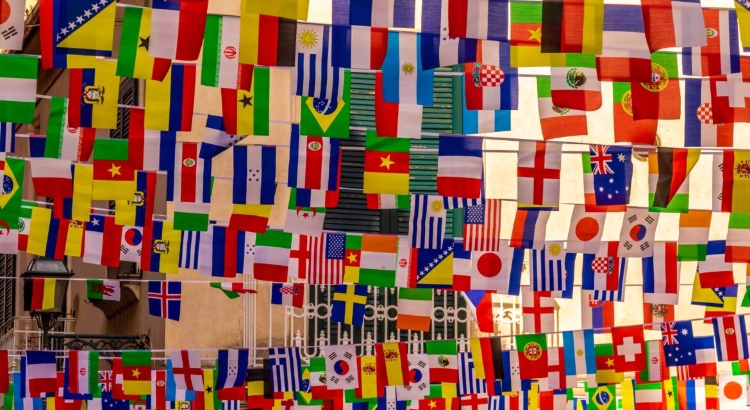13 Surprising Social Customs Around the World
Across the globe, people follow unique traditions and customs that help shape their culture. If you travel to different countries, you will notice how social etiquette can change from one place to another. Understanding these customs can help you connect with others, avoid misunderstandings, and show respect during your travels.
1. Malaysia and Indonesia: Pointing with the Thumb
In Malaysia and Indonesia, pointing with your index finger is considered rude. Instead, people use their thumb to indicate directions or draw attention. This gesture is seen as more polite and respectful.
- Use your thumb, not your index finger, to point at objects or directions.
- Pointing at people, especially with any finger, can be considered impolite.
In many African countries, the same rule applies—point only at objects, not people.
2. Greece: Symbolic Spitting to Ward Off Evil
In Greece, spitting is tied to old superstitions to chase away evil. During weddings or baptisms, guests may make a "ftou" sound (a symbolic spit) to protect newlyweds or babies.
- This gesture is not meant to insult but to bring good luck.
- The custom has changed over time and now involves only the sound, not actual spitting.
3. Philippines: Pointing with the Lips
Filipinos often use their lips to point at objects or directions. To do this, a person puckers their lips and points them toward what they mean.
- This method is considered casual and nonverbal communication.
- People sometimes raise their eyebrows while doing this gesture, adding more emphasis.
4. France: Complex Rules for Greeting Kisses
French greetings often involve kissing on the cheeks. However, the rules around this custom are detailed and change depending on the region.
- The number of kisses varies by area—some places require two, others up to four.
- It is expected to greet everyone at a gathering, even strangers.
Understanding local customs can help you avoid awkward moments when visiting France.
5. Nigeria: Kneeling and Prostrating to Show Respect
In the Yoruba culture of Nigeria, younger people show respect to elders by kneeling (for women) or prostrating (for men) when greeting them.
- This act shows deep respect and follows traditional etiquette.
- Other Nigerian groups may have different greeting customs.
6. Russia: September 12 as the National Day of Conception
In Russia, falling birth rates led to the creation of a "Day of Conception" on September 12. The government encourages couples to take the day off work to try to start a family (Statista, 2022).
- Couples with babies born nine months later may receive prizes.
- The holiday is part of a broader effort to balance the population.
7. Denmark: Picnicking in Cemeteries
Denmark treats cemeteries as peaceful parks for locals to enjoy, especially during spring. Many Danish cemeteries are open, green spaces designed for both remembrance and relaxation.
- It is common to see families having a picnic or reading among the graves.
- Copenhagen cemeteries are known for their historical importance and beauty.
8. Iceland: Gifting Books on Christmas Eve
Iceland celebrates a tradition called Jolabokaflod, or the "Christmas Book Flood."
- Everyone gives and receives books on Christmas Eve.
- After unwrapping the books, families spend the evening reading together (Reykjavik City Library, 2020).
9. Japan: Slurping Noodles as a Compliment
In Japan, making loud slurping sounds while eating noodles is seen as a sign you enjoy your meal.
- This act helps cool down hot noodles and shows respect to the chef.
- Unlike in other countries, noisy eating is not rude but appreciated in noodle shops.
10. United States: The Culture of Tipping
Tipping in the United States is a standard practice, especially in restaurants. Most servers expect tips around 15-20% of the bill (Statista, 2023).
- Tipping also applies to bartenders, delivery workers, and hotel staff.
- In some countries, like South Korea, tipping can be viewed as disrespectful since workers are appropriately compensated already.
11. Switzerland: Honesty Stores in Rural Areas
Some Swiss villages have "honesty shops" where customers buy goods and leave payment in a box if the shopkeeper is away.
- Products include bread, milk, cheese, honey, and butter.
- This system is based on mutual trust within small communities.
12. Germany: Waiting for the Green Pedestrian Light
Germans generally wait for the pedestrian signal before crossing streets, even if no cars are coming.
- This habit is part of Germany's focus on safety and respect for rules.
- Jaywalking is frowned upon and can bring dirty looks from locals.
13. Worldwide: Right Hand vs. Left Hand Etiquette
In many cultures across Asia, Africa, and the Middle East, using your left hand for eating or greeting is taboo.
- People use the left hand for personal hygiene tasks, so the right hand is the "clean" hand for food and social gestures.
- Following these customs shows awareness and respect for local etiquette.
Understanding Cultural Differences
Being aware of social customs helps you interact easily and respectfully across different cultures. In today's connected world, understanding cultural nuances can make a big difference in business, education, and travel.
- Research the local customs before you visit a new country.
- Respecting traditions helps build stronger relationships and avoid mistakes.
If you work with global teams, share information across languages, or want to make sure your message is understood everywhere, you need solutions designed for a diverse world.
GoTranscript: Your Partner for Cross-Cultural Communication
At GoTranscript, we make it easy to work across cultures and languages. Whether you need transcription services, text translation, audio translation, or closed caption services, we help you bridge the gap between languages and customs.
- Choose automated transcription or a subscription option for speed and accuracy.
- For perfect results, try our transcription proofreading services.
- Find out more about our transparent transcription pricing and captioning rates.
- Order transcription or order captions today.
Ready to connect with the world? Explore GoTranscript for reliable, culturally sensitive communication solutions.


 Transcription
Transcription
 Captions (FCC/SDH)
Captions (FCC/SDH)
 Transcript Editing & Proofreading
Transcript Editing & Proofreading
 Translation (text/audio/images)
Translation (text/audio/images)
 Subtitles
Subtitles
 Video Description (AD)
Video Description (AD)









